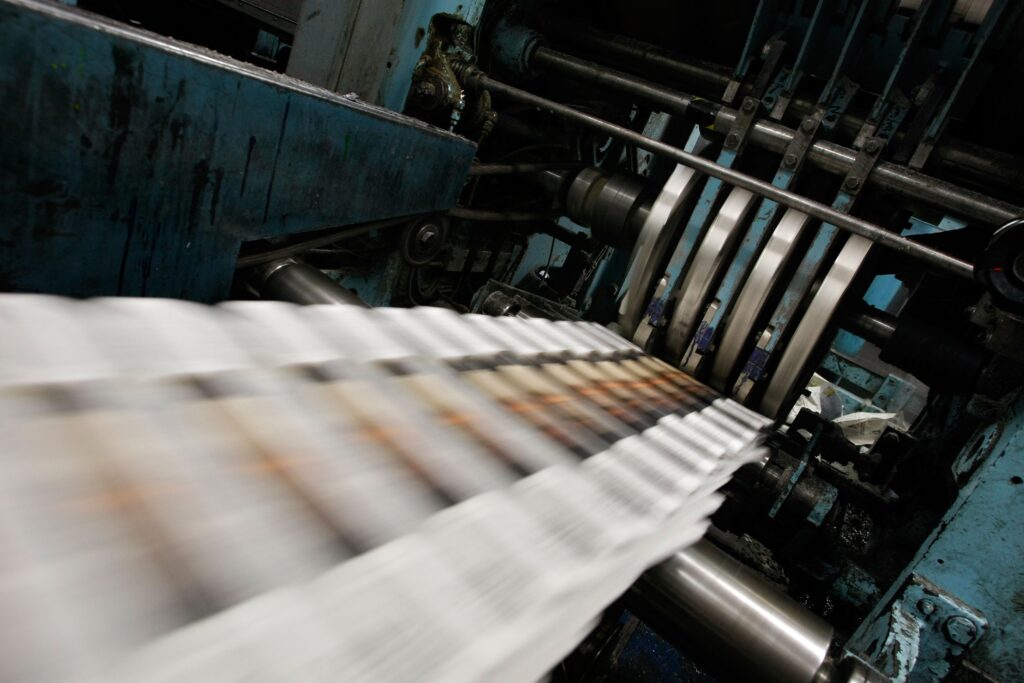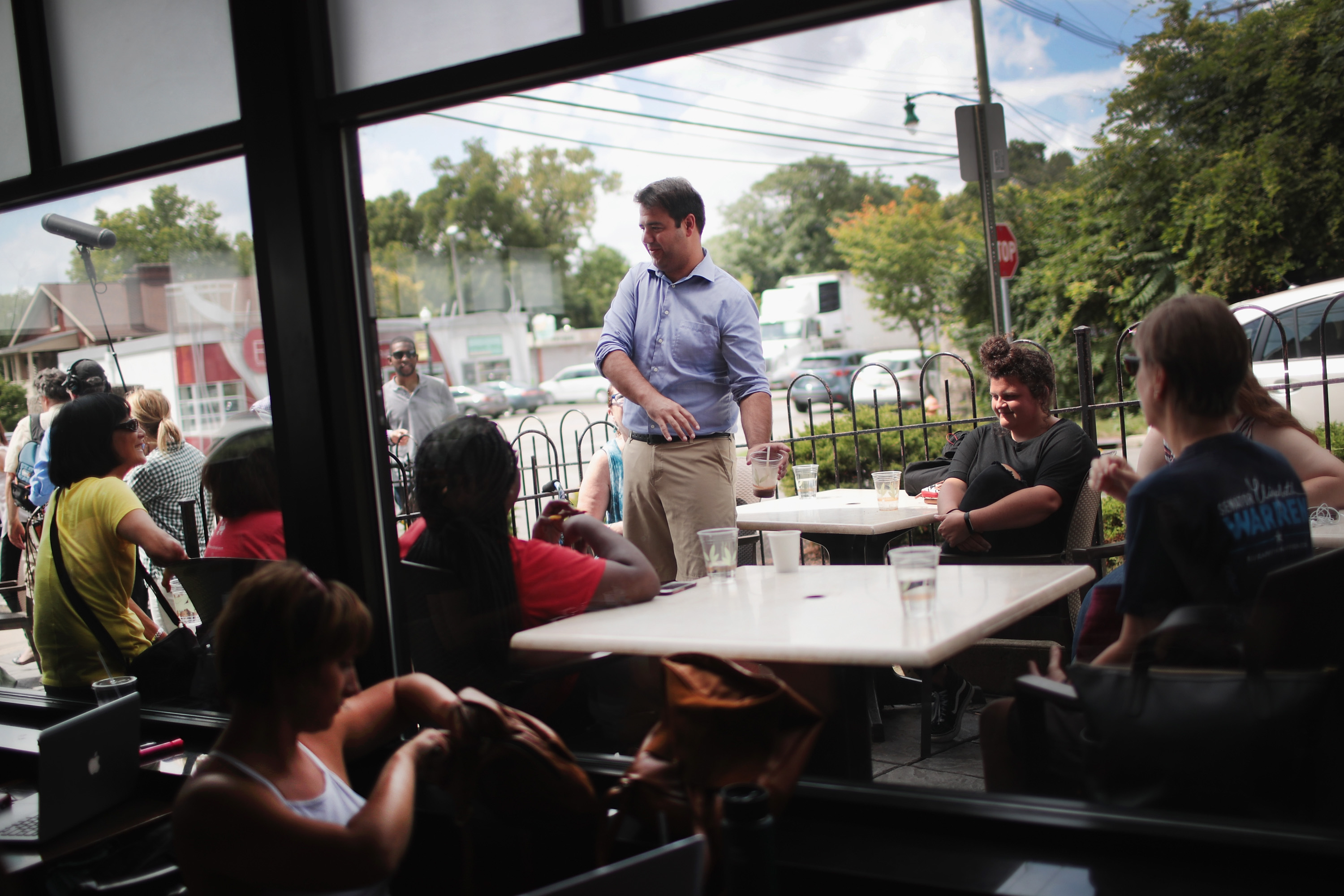A weekly newsletter for Pacific Standard Premium members.

(Photo: Stephanie Berger)
Your Five Essential Reads
A rundown of five of our most important and timely stories from the past week.
- Ginger Strand was born and raised in Michigan, but the state has changed significantly since she moved away almost two decades ago. As a result of partisan redistricting initiatives led by the Republican-controlled statehouse, Michigan has gone from a centrist swing state to a stronghold of the right. Read Strand’s feature here.
- “People kept saying to me, ‘You gotta do something on fake news,’ and I thought, it’s such a bigger issue than that.” Alison Head co-authored a new report on the media habits of almost 6,000 college students that reveals some stunning aspects of how the digital age has affected young people’s news consumption habits. She spoke with contributing writer Jack Denton about her team’s findings. Read Denton’s interview here.
- “Prison culture can be hard on one’s humanity, what with gangs, getting high, and gossiping about prison’s pecking order (this guy’s a rat, that guy’s a rapist). Yet I’ve observed how music can restore what’s missing in prison: a respect for humanity.” John J. Lennon, an inmate in New York’s Sing Sing prison, writes about how music can restore humanity for the incarcerated. Read Lennon’s story here.
- It’s well documented that domestic abuse can have a devastating emotional impact on survivors, but what’s less talked about is the economic impact it can also have. Contributing writer Natalie Pattillo break down about a new report that shows how significant the financial damage can be for people with abusive partners. Read Pattillo’s piece here.
- Early this week, President Donald Trump fanned the flames of the ongoing debate between farmers and environmentalists in California over what to do with the state’s water. Trump claimed that California has “so much water they don’t know what to do with it,” and that it “naturally flows” to farms, but the government “sends it out to the Pacific Ocean.” As staff writer Kate Wheeling outlines, most of his claims were wrong. Read Wheeling’s piece here.

Dispatches: The Power of Investigative Journalism
What makes an investigative story? Think about how the world should ideally work—and then think about how it actually does. The bigger the gap between those two worlds, the more important a story you have. That’s how Philadelphia Inquirer editor Jim Neff put it when speaking to a group of journalists last week. Neff has shepherded hard-hitting stories, such as the Inquirer‘s Toxic City series, which reported on children being poisoned by carbon monoxide (from construction work) and lead (from peeling paint), while at school. There’s a chasm between that and how safe and healthy schools should be for kids.
I saw Neff speak while spending four days at the Center for Health Journalism at the University of Southern California. I’ve received a fellowship from the center to spend the next six months working on a data-driven health story. My story will examine the availability, in California, of the gold-standard treatment for opioid addiction. (It should be available everywhere!) During my training days, I happened to amass a great reading list of investigative journalism, which popped up as examples during the classes the other fellows and I took. Here’s a short list:
- Toxic City, by several journalists, Philadelphia Inquirer
- “Overlooked,” by Cary Aspinwall, Dallas Morning News—What happens to children when their mothers are jailed?
- “Intake,” by Rosalind Adams, BuzzFeed—About a chain of psychiatric hospitals that kept patients locked up unnecessarily, for the insurance payments.
- “The Land Alcoa Dammed,” by Rich Lord and Len Boselovic, Pittsburgh Gazette—How a Pittsburgh-based aluminum company transformed a small South American country called Suriname–and then abandoned it, a century later.
- “Millions of People Post Comments on Federal Regulations. Many Are Fake,” by James V. Grimaldi and Paul Overberg—This one is sort of fun! Read about how interest groups generate fake public comments, attributed to dead people, live people who didn’t give permission for their information to be used in this way, and seemingly fake people, such as “Elzor the Blarghmaster.”
Investigative journalism can be a tough read. These stories are about some of the most serious problems in society. But I like to see them as hopeful too. They show that somebody cared enough and was skilled enough to unearth these important inequities. Plus, the best stories prompt action. In Philadelphia, for example, the school district tried to clean the worst-off schools over the summer and the mayor promised millions toward clean-up and repairs of the city’s most run-down schools. At Pacific Standard we are looking to do reporting that is also capable of creating a better and more just society. Thoughtful investigative journalism is one of the main ways we hope to do that.
—Francie Diep, Staff Writer

(Photo: Scott Olson/Getty Images)
PS Picks
PS Picks is a selection of the best things that the magazine’s staff and contributors are reading, watching, or otherwise paying attention to in the worlds of art, politics, and culture.
The Hipster Coffee Shop: Conservatives fed up at Jon Stewart and Jimmy Fallon and Seth Myers have long searched for a late-night conservative comedian, but, more recently, their lack of representation in the early morning has come to a head too: In the voices of many to the right of center, the coffee shop market appears cornered entirely by liberals. In recent years, a number of conservative, and specifically Second Amendment-friendly coffee shops, have sprouted across the country. And yet the idea, coined by David Brooks, of the “latte liberal” still holds large cultural currency, and so the café sits at the center of long-brewing culture wars. In the wake of widely unpopular stances and executive orders, President Donald Trump’s defenders online will frequently reference overhearing hushed approval for their man at “hipster coffee shops”—presumably offering evidence of Trump’s quiet (and totally true) support from even those on the left-wing.
An enumerated, representative set of examples from Trump supporting, Gateway Pundit commenter Jacob Wohl: https://twitter.com/HashtagGriswold/status/1055226349890256897
To be certain, there is a sense in which coffee shops may have a liberal bent. A recent survey of 1,500 Americans, produced by the University of Pennsylvania’s Annenberg School for Communication, found that, while Americans across the aisle love coffee, support for the specialty drinks one typically finds at cafes—like lattes—was higher among liberals. (After controlling for location and socioeconomic factors, the researchers found the effect still held and concluded it might be related to the fact that liberals are more likely to try something with a foreign-sounding name—no matter that most coffee beans are imported.) Some cafés have even acted on that liberal bent: Starbucks, notably, rebuked Trump’s travel ban by pledging to hire 10,000 refugees by 2022.
For their part of the “hipster coffee shop” equation, hipsters do skew liberal, even though they are frequently decried by the left for their poor personal politics (notably as gentrifiers).
And yet, to anyone who has ever actually set foot in a café, there is something twee about the conservative fantasy of the coffee shop as a liberal oasis. Sometimes a morning coffee is, in fact, a morning coffee, and not fuel for resistance politics.
The fake dispatches from cafés, however, should never cease. If the café itself cannot truly be the epicenter of left politics, we can settle for its existence as such in the minds of those on the right.
—Ben Rowen, Associate Editor
PS in the News
A look at where our stories and staff surface in the national conversation.
- The Democratic Legislative Campaign Committee and the National Democratic Redistricting Committee shared Ginger Strand’s feature story on gerrymandering in Michigan.
- Staff writer Kate Wheeling’s story about a recently approved facility for offshore oil drilling in Alaska was included in the Center for Western Priorities Newsletter.
- Representative Lois Frankel (D-Florida), who chairs the Democratic Women’s Working Group, shared contributing writer Natalie Pattillo’s story about the economic implications of domestic abuse.
The Conversation
How One Tiny Town Is Battling ‘Rural Brain Drain’ (October 24th, 2018)
- While I appreciate the intent of this story (a small town has been turned around!), I worry that the lack of diversity in the town will only exacerbate the division our nation is facing. Isolating and insulating oneself, befriending only people who look and think like you, is problematic at best. I’m afraid that, in our current climate (presidentially sanctioned white supremacy, misogynism, bigotry, etc.), this tendency toward interacting primarily with people with the same background will create many more problems than it solves. —Linda Grace
The Secret Betrayal That Sealed Nike’s Special Influence Over the University of Oregon (October 18th, 2018)
- I started at UO in 2001. It’s incredible to read the backstory to what felt like an overnight re-branding of the school. I remember them scraping the old fighting Donald Duck logo off the bookstore window, the test-design uniforms we wore, and the bags of Nike swag they gave out. —Chelsea Whyte
If you have any thoughts about this newsletter or our work—what you like/didn’t like/want to see more of—you can reach us at premium@psmag.com. If you’re not already, become a premium member by following the button below. As we continue to build out the benefits of a premium membership to Pacific Standard, we want to hear what would be most valuable to you.





